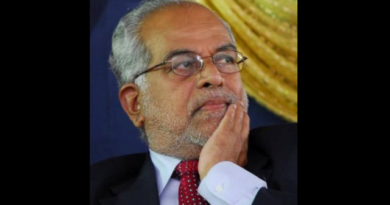Karnataka High Court Reserves Ruling on CM Siddaramaiah’s Challenge To Governor’s Approval For Probe Into MUDA Case
(Judicial Quest News Network)
13, September 2024
On Thursday, the Karnataka High Court reserved its verdict on a petition filed by Chief Minister Siddaramaiah, challenging the legality of the Governor’s approval for an investigation into allegations involving the Mysore Urban Development Authority (MUDA). The case pertains to allegations that Siddaramaiah’s wife, Parvati, was unlawfully allotted 14 plots in a layout in Mysore city by MUDA.
During the proceedings, senior advocate Abhishek Manu Singhvi, representing Siddaramaiah, argued that there were no legal violations either in the land acquisition by MUDA or in the allotment of the 14 plots. Singhvi contended that Siddaramaiah, while he was in office, had no direct involvement with MUDA or any of its decisions, nor had he signed any official documents related to these allotments.
Arguments concluded on Thursday, and the court is now deliberating its decision.
The dispute centers around the Governor’s August 17 sanction under Section 17A of the Prevention of Corruption Act and Section 218 of the Bharatiya Nagarik Suraksha Sanhita (BNSS), which allowed for the investigation into the allegations. Singhvi challenged this decision, highlighting discrepancies in how the Governor had handled similar cases. He pointed out that the Governor had sanctioned investigations against other figures in the past, including former BJP ministers Murugesh Nirani and Shashikala Jolly, but had acted differently in Siddaramaiah’s case.
Singhvi noted that the application against Shashikala Jolly, which involved allegations of bribery in a mid-day meal scheme, had been pending for over three years before being rejected on August 8, 2024. In contrast, Siddaramaiah’s case, which involved allegations of corruption related to MUDA, saw rapid developments following his response to the Governor’s notice on August 3, 2024. Singhvi criticized the Governor for what he viewed as a disparity in handling these cases, arguing that it violated Article 14 of the Constitution, which guarantees equality before the law.
Singhvi elaborated on the legislative history behind Section 17A, explaining that it was designed to protect public servants by requiring prior approval for investigations based on private complaints. He argued that the Governor’s actions undermined this protective layer and suggested that political motivations might be influencing the decisions.
Professor Ravi Varma Kumar also weighed in, criticizing the Governor’s decision as a threat to democratic principles and indicative of political vendetta. He noted that Siddaramaiah is the only individual in the past 50 years to have served a full five-year term as Chief Minister and suggested that the Governor’s handling of the case might be undermining democratic norms




